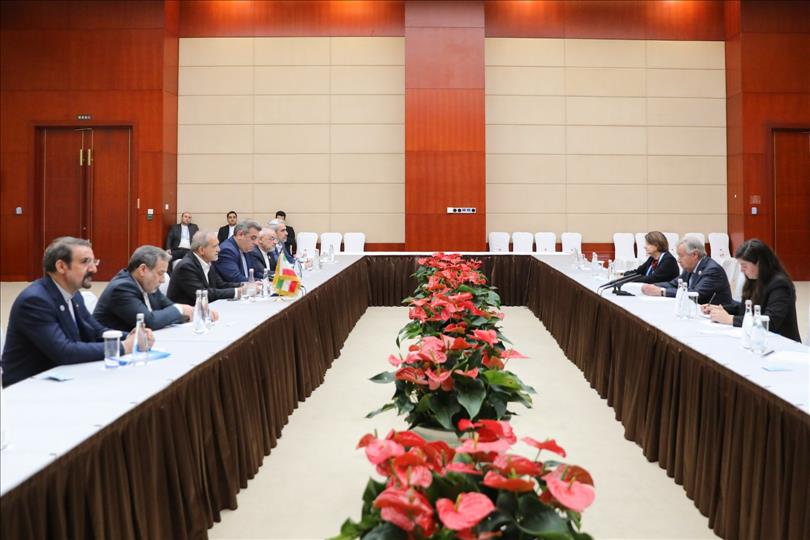Iran Reaffirms Commitment To Diplomatic Resolution Of Nuclear Issue
Pezeshkian noted that Tehran has entrusted its cooperation with the International Atomic Energy Agency (IAEA) to the country's Supreme National Security Council to ensure a constructive and effective framework.
He noted that Iran's parliament had passed a law to suspend cooperation with the IAEA in response to what he described as untrustworthy actions by the agency's director general, particularly its failure to condemn attacks on Iranian nuclear facilities.
Guterres, for his part, said he was convinced that Iran is not pursuing nuclear weapons and that its nuclear program remains peaceful. He cautioned, however, that activating the UN Security Council's“snapback” mechanism to reinstate sanctions on Iran could create serious complications, a concern echoed in recent discussions with European officials involved in the Joint Comprehensive Plan of Action (JCPOA).
The“snapback” mechanism is based on Articles 36 and 37 of the Joint Comprehensive Plan of Action (JCPOA). According to these provisions, if one party complains that another has violated the agreement and resolution efforts fail, the issue can be brought before the United Nations Security Council (UNSC). If the UNSC accepts the complaint, international sanctions against Iran can be reinstated, and the Security Council members may authorize military operations against Iran. On June 22, the US launched military airstrikes on three Iranian nuclear facilities. It is reported that the airstrikes destroyed the Iranian nuclear facilities.
On January 16, 2016, the JCPOA came into force between Iran and the P5+1 group (US, Russia, China, the UK, France, and Germany) regarding Iran's nuclear program. However, on May 8, 2018, the US withdrew from the Joint Comprehensive Plan of Action (JCPOA) between Iran and the 5+1 group (Russia, China, the UK, France, the US, and Germany) and imposed new sanctions on Iran starting from November 2018.
By the end of 2020, the Iranian parliament decided to pursue a strategic plan in the nuclear sector to counter the sanctions, leading to a suspension of additional steps and the Additional Protocol as per the nuclear agreement.
Consequently, the International Atomic Energy Agency (IAEA) faced a reduction in monitoring capabilities by 20-30 percent.
The US conducted airstrikes targeting three nuclear facilities in Iran on June 22, reportedly causing significant damage.

Legal Disclaimer:
MENAFN provides the
information “as is” without warranty of any kind. We do not accept
any responsibility or liability for the accuracy, content, images,
videos, licenses, completeness, legality, or reliability of the information
contained in this article. If you have any complaints or copyright
issues related to this article, kindly contact the provider above.
Most popular stories
Market Research

- Japan Well Intervention Market Size To Reach USD 776.0 Million By 2033 CAGR Of 4.50%
- Vietnam Artificial Intelligence Market Size, Share, Growth, Demand And Report 2025-2033
- Industrial Hose Market Size, Trends, Growth Factors, Latest Insights And Forecast 2025-2033
- Nutritional Bar Market Size To Expand At A CAGR Of 3.5% During 2025-2033
- What Does The Europe Cryptocurrency Market Report Reveal For 2025?
- North America Perms And Relaxants Market Size, Share And Growth Report 2025-2033




















Comments
No comment